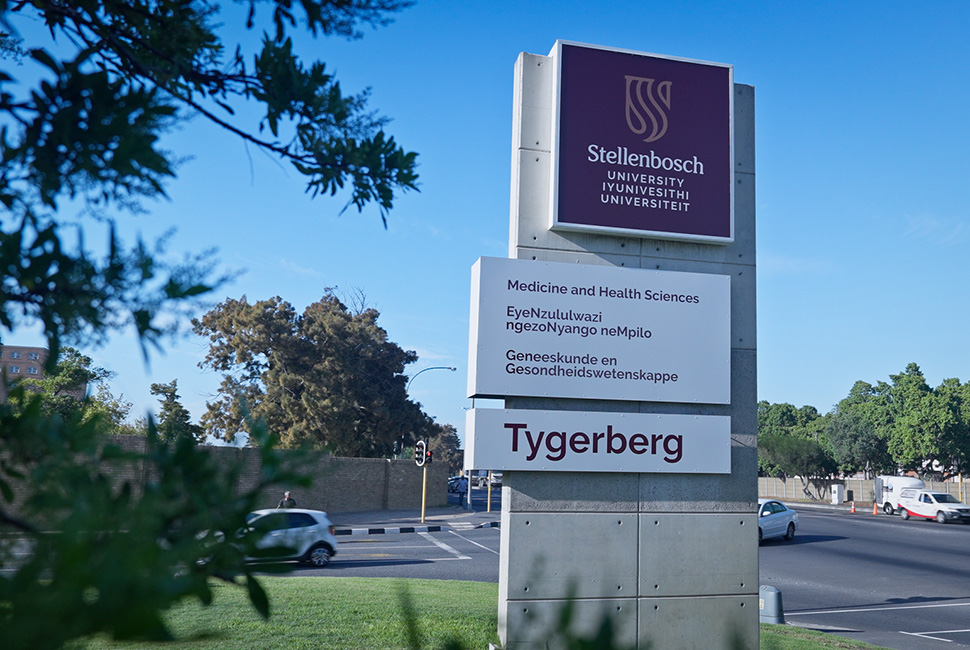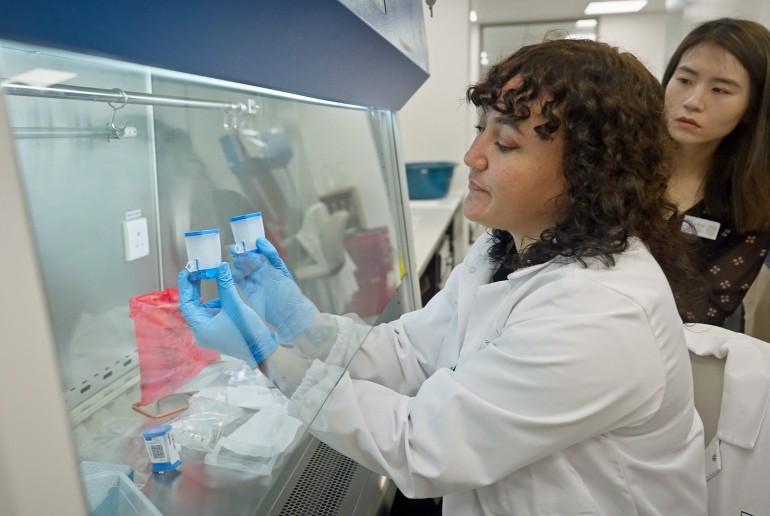More than 40 Northwestern faculty, students and staff journeyed to Stellenbosch University in South Africa in March for the inaugural conference of the newly formed SU/NU Global Health Knowledge Hub.
Against a backdrop of mountains, they shared knowledge about everything from studying longevity to building capacity for genomic sequencing of viruses in low-resource areas — demonstrating the holistic approach to global health that has been the basis of a more than two-decade partnership between Northwestern and Stellenbosch.
Now, the universities are deepening their relationship with the SU/NU Global Health Knowledge Hub. Initiated by the Robert J. Havey, MD Institute for Global Health, the Hub brings together collaborations covering several Northwestern schools.
“For over two decades, Stellenbosch and Northwestern have been in an incredibly productive partnership,” said Dr. Robert Murphy, executive director of the Havey Institute for Global Health. “We have sent hundreds of students to study there, and their students have come here to learn. Our biomedical engineering collaborations have yielded solutions to medical technologies developed specifically for low-resource settings. We are delighted to be expanding our research and work into some of the most urgent issues in global health today.”
In addition to physical spaces at both universities, the hub includes new working groups focusing on critical areas, such as global primary care and biomedical engineering, where transnational cooperation can accelerate solutions to pressing global health challenges. Members of the hub can also apply for Project Awards, Catalyzer Awards and Global Innovation Challenge Awards from the Robert J. Havey, MD Institute for Global Health at Northwestern Feinberg School of Medicine.
“I believe strongly that universities must be global in outlook while deeply engaged with local communities. This knowledge hub will allow us to do just that: connect brilliant minds across continents while working directly with communities to improve health outcomes,” said Dévora Grynspan, vice president for international relations at Northwestern, who initiated the partnership in 2004.
Launching this new initiative reinforces Northwestern’s interdisciplinary ecosystem, in which medical expertise from the Havey Institute meets engineering innovation and business implementation strategies, with help from colleagues from Weinberg College of Arts and Sciences, McCormick School of Engineering and Kellogg School of Management.



